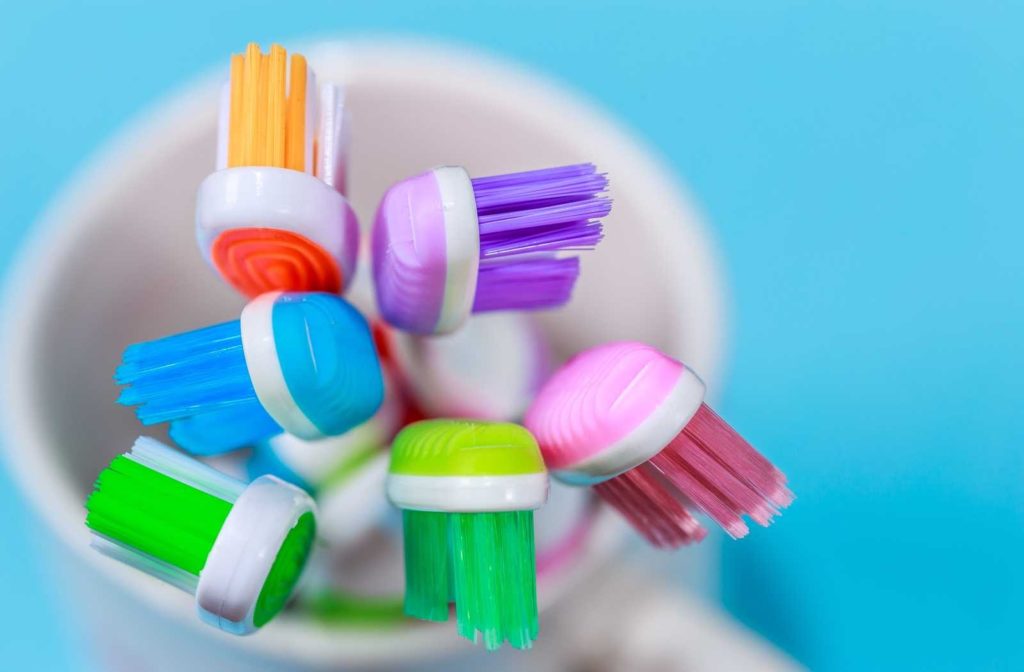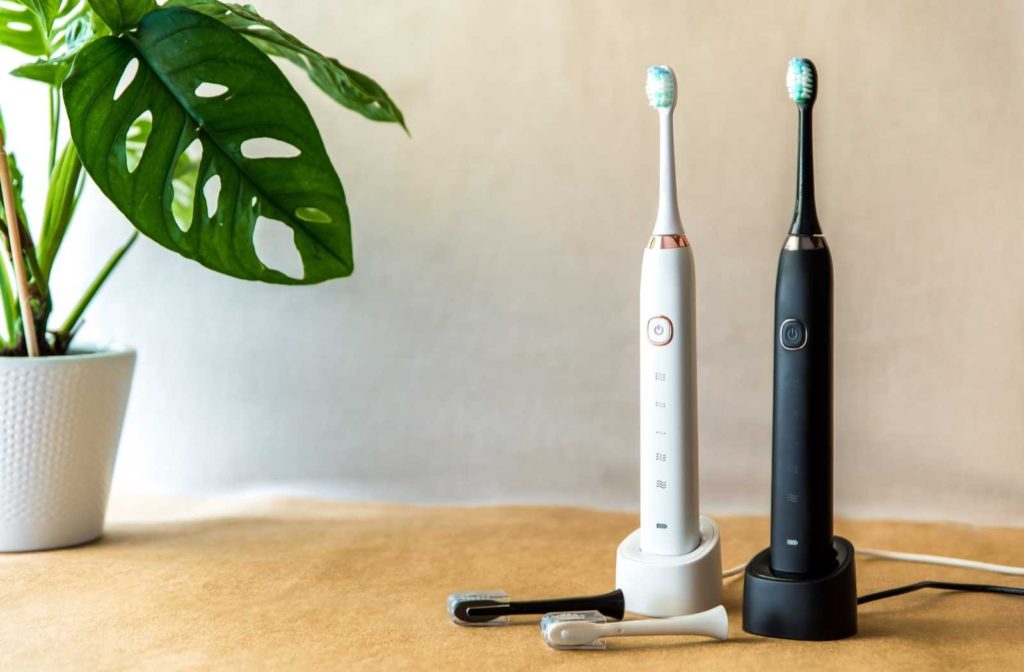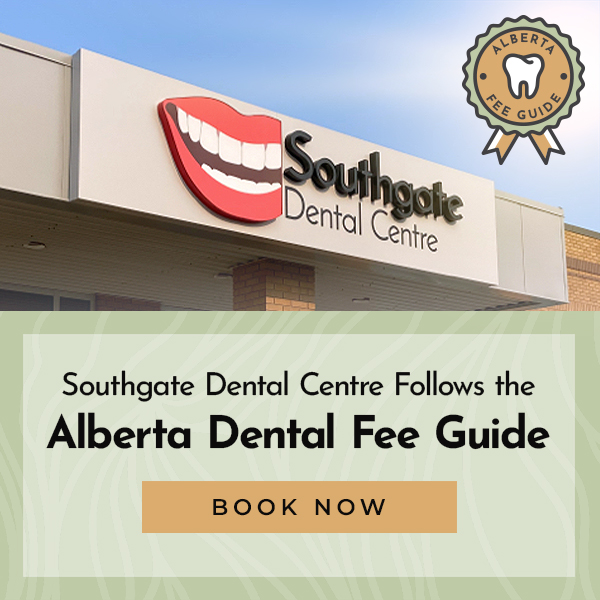
The toothbrush might well be one of the most important tools in your arsenal against tooth decay, along with a roll of floss. Aside from the type of toothbrush, how well you brush and how long you brush for are key factors in your oral health.
In addition to brushing, interdental cleaning, like flossing, you might be able to use some pointers on what toothbrushes will serve you best—so your next dental exam is full of good news.
The Relationship Between Your Enamel & Your Toothbrush
Enamel is the hard, translucent, mineralized surface of each tooth. It protects your teeth from heat, pressure, and bacteria—which can turn into plaque, leading to tartar, cavities, and gum disease.
Brushing your teeth can give you the oral health you need. It’s like doing your homework, making your time at the dental exam a breeze. If you haven’t been sufficiently brushing (or flossing), your time at a dental cleaning will be harder than it has to be.
Brushing techniques and advice can provide a lot of benefits. Still, you might still need some guidance on the material factors of the brush involved.
Softness is Crucial
If you pick a random toothbrush up off of the rack at a place that sells them, there’s a chance you’ll get one that’s too hard. Always choose a soft or extra soft toothbrush.
Soft toothbrushes preserve vital parts of your tooth’s natural layers—your gum line and your enamel. If your brush is too hard, you can wear the enamel and hurt the gumline. The root surface of your teeth is softer than enamel, making this area extra vulnerable.
A hard or medium bristled toothbrush can form part of the reason your gum line might be receding, wearing grooves into your teeth, or causing sensitivity. In this case, an extra-soft bristled toothbrush comes recommended.
Size & Shape
In addition to making sure your toothbrush has soft bristles, the size and shape are also important.
Make sure your toothbrush has a straight handle. The brush head should also be small enough for you to reach your very back teeth. This is especially important for children’s toothbrushes, as they have smaller mouths.
Toothbrush Choices for Seniors
For seniors with all-natural teeth, your selection of toothbrushes remains vital. If there’s ever a time to double down on extra-soft toothbrushes, it’s at this stage of life.
It’s safe to get an able-bodied person to help you with brushing your teeth with sufficient thoroughness and having a soft bristled toothbrush will help.
But in this case, communication is key. You’ll need to communicate often about whether your helper is brushing your teeth too hard. A person’s gums are sensitive to pressure, regardless of age, and again, enamel can wear thin if a toothbrush’s bristles are too hard. You might want to opt for a toothbrush with a flexible grip in case you’re getting help with brushing.
Enamel can be remineralized with consistent fluoride treatments at regular dental cleanings, but enamel preservation with the right brush is crucial for comfort in old age.
You may want to use an electric toothbrush, especially if you have arthritis or limited mobility in your hands. It can also ease stress on your hand and arm muscles while granting a sufficiently thorough clean.
Manual & Electric Toothbrushes

For people of all ages, it might be best to “go electric.” An electric toothbrush has a few advantages over a manual brush, but it hasn’t completely replaced it. As long as your brushing technique allows you to do a great job and you brush for 2 full minutes, there’s no need to worry.
Nevertheless, an electric toothbrush grants a few advantages:
- The oscillation motion of the brush head has proven more effective at removing plaque.
- Different toothbrush heads allow for minimizing the impact on existing oral health issues.
- Small heads allow for easier access to the nooks and crannies of your teeth.
- Built-in timers ensure you brush for at least 2 minutes.
Some toothbrush heads are made of materials especially for sensitive teeth, so you can better preserve your enamel while keeping your mouth healthy and clean.
Dentures
Whether you’re getting help brushing your teeth or not, cleaning dentures requires some thought as well. But the key to cleaning dentures is using a denture brush. Dentures are made of synthetic materials, so you’ll want to use a soft brush, cleaning solution, and techniques that preserve the materials they’re made of.
Replace Your Toothbrush Regularly
No matter which toothbrush you choose, make sure you replace the toothbrush or the electric brush head every 3 months. If the bristles look worn out or frayed, it’s time for a new toothbrush.
Make Use of Your Complimentary Toothbrush
When in doubt, use the toothbrush your dental hygienist gives you at your next dental exam and cleaning. We can make use of our observations of your gum line, enamel condition, and brushing trouble spots. If you ever need any guidance on what toothbrush you need in your life you can request an appointment and ask us personally!


